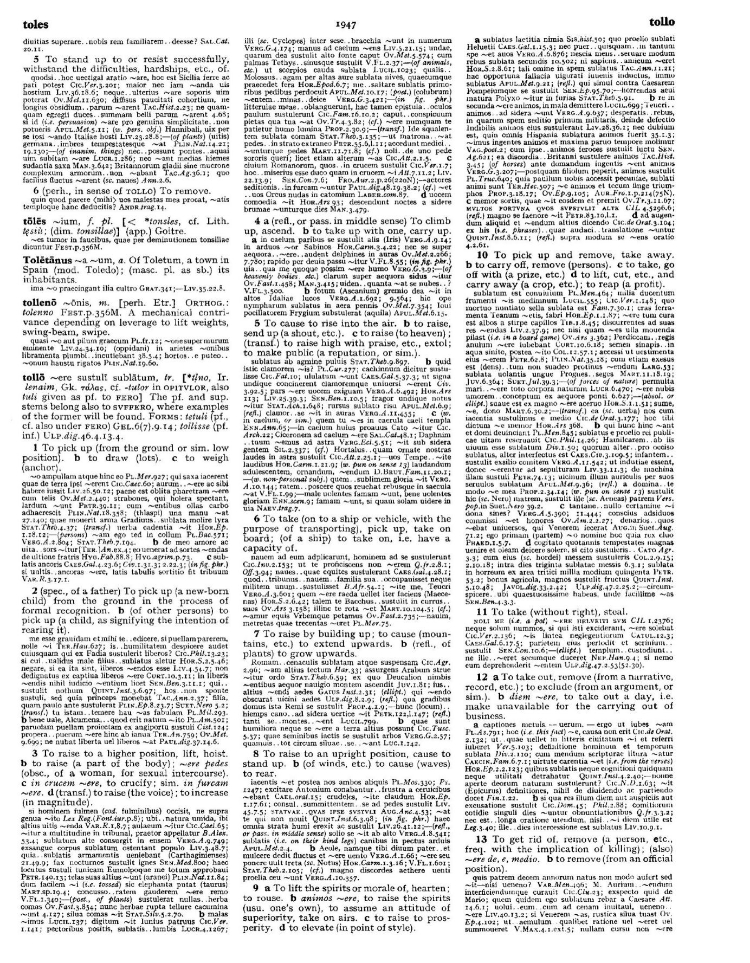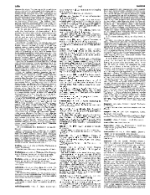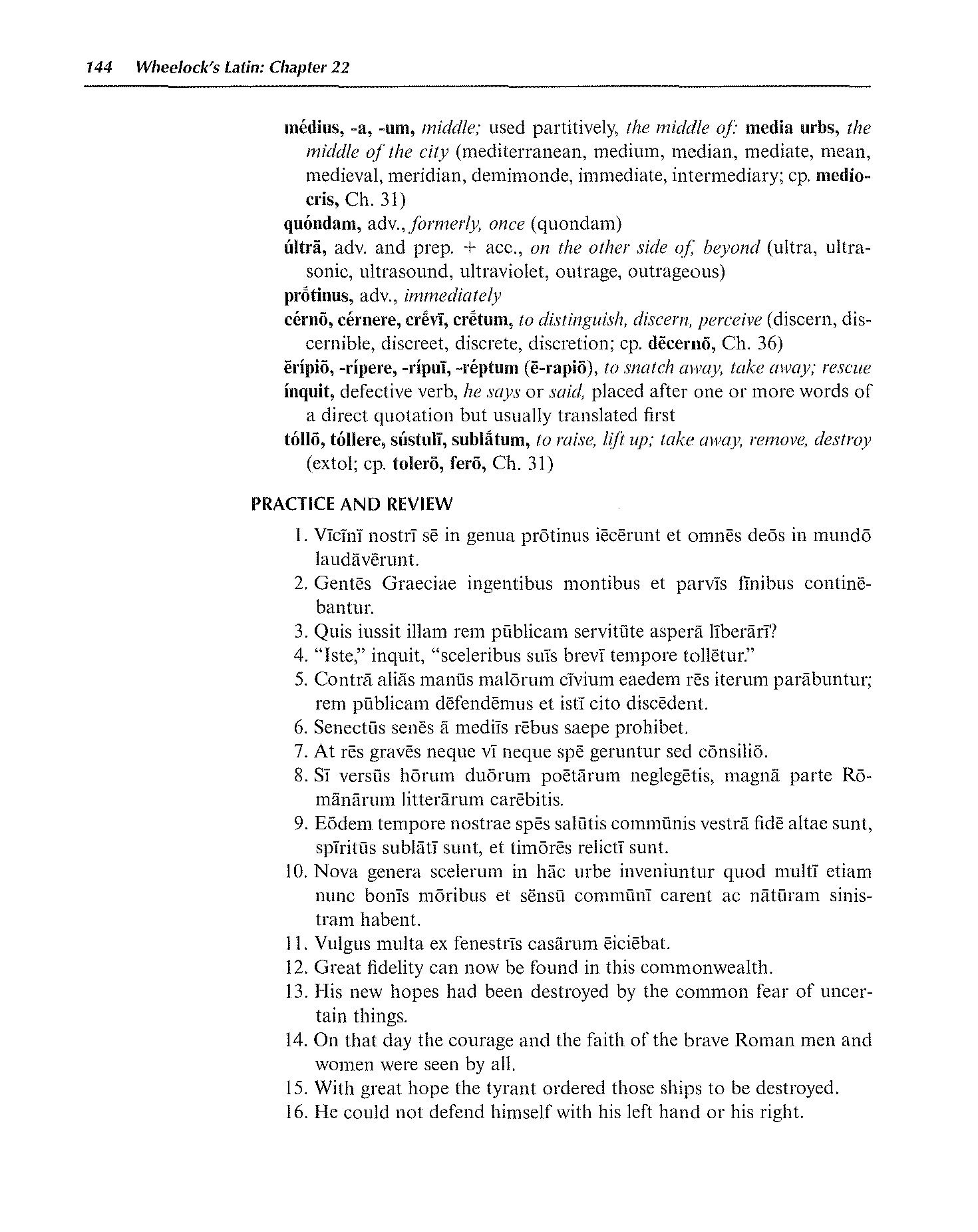
page_listing.tpl
page_subListingDetails.tpl
sub_listingDetails_style1.tpl
sub_listingDetails.title.tpl
tollere to take away
tollere is a Latin Verb that primarily means to take away.
Definitions for tollere
Wheelock's Latin
Verb
- 1
to raise, lift up, take away, remove, destroy
English derivatives:
extol
Oxford Latin Dictionary
Verb
- 1
To pick up (from the ground or sim. low position). (b) to draw (lots). (c) to weigh (anchor).
- 2
(spec., of a father) To pick up (a new-born child) from the ground in the process of formal recognition. (b) (of other persons) to pick up (a child, as signifying the intention of rearing it).
- 3
To raise to a higher position, lift, hoist. (b) to raise (a part of the body); ~ere pedes (obsc., of a woman, for sexual intercourse). (c) in crucem ~ere, to crucify; sim. in furcam ~ere. (d) (transf.) to raise (the voice); to increase in magnitude.
- 4
(a) (refl., or pass. in middle sense) To climb up, ascend. (b) to take up with one, carry up.
- 5
To cause to rise into the air. (b) to raise, send up (a shout, etc.) (c) To raise (in heaven); (transf,) to raise high with praise, etc., extol; to make public (a reputation, or sim.).
Sentences with tollere
Latin to English
Omnēs cīvēs sē patriae dent nē hostēs lībertātem tollant.Compare Let all citizens dedicate (give) themselves to the country so that the enemy may not take away their liberty.
Hī vincentēs omnia iūra cīvium victōrum tollent.Compare These men, if they conquer, will take away all the rights of the conquered citizens.
Humana ante oculos foede cum vita iaceret in terris oppresa gravi sub religione quae caput a caeli regionibus ostendebat horribili super aspectu mortalibus instans, primum Graius homo mortalis tollere contra est oculos ausus primusquue obsistere contra.Compare When man's life lay for all to see foully groveling upon the ground, crushed beneath the weight of Religion, which displayed her head in the regions of heaven, threatening mortals from on high with horrible aspect, a man of Greece was the first that dared to uplift mortal eyes against her, the first to make stand against her.
Nosse fidem rerum dubiasque exquirer causas, ingenium sacrare caputque attollere caelo, scire quot et quae sint magno natalia mundo principia ... divina est animi ac iucunda voluptas.Compare To know the truth, to inquire into uncertain causes, to immortalize genius, to lift one's head to the sky, to grasp the number and nature of the great universe's first principles ... this is the mind's divine and gratifying joy.
Os homine sublime dedit, caelumque tueri iussit et erectos ad sidera tollere vultus.Compare He gave to man an uplifted face and bade him stand erect and turn his eyes to heaven.
Reperio T. Ampius conor tollo pecunia Ephesus ex fanum Diana.Compare He found that T. Ampius had attempted to take the money from the temple of Diana at Ephesus.
Noctu clam tollo signum pulcher atque antiquus.Compare He took away secretly by night the very beautiful and very ancient statues.
Conjugation table for tollere
Cactus2000
| ACTIVE | |
| Indicative present | Indicative imperfect |
| tollō tollis tollit tollimus tollitis tollunt | tollēbam tollēbās tollēbat tollēbāmus tollēbātis tollēbant |
| Indicative perfect | Indicative pluperfect |
| sustulī sustulistī sustulit sustulimus sustulistis sustulērunt / sustulēre | sustuleram sustulerās sustulerat sustulerāmus sustulerātis sustulerant |
| Indicative future | Indicative future perfect |
| tollam tollēs tollet tollēmus tollētis tollent | sustulerō sustuleris sustulerit sustulerimus sustuleritis sustulerint |
| Subjunctive present | Subjunctive imperfect |
| tollam tollās tollat tollāmus tollātis tollant | tollerem tollerēs tolleret tollerēmus tollerētis tollerent |
| Subjunctive perfect | Subjunctive pluperfect |
| sustulerim sustuleris sustulerit sustulerimus sustuleritis sustulerint | sustulissem sustulissēs sustulisset sustulissēmus sustulissētis sustulissent |
Infinitive present tollere Infinitive perfect sustulisse Infinitive future sublātūrum esse | Imperative present tolle tollite Imperative future tollitō tollitō tollitōte tolluntō |
| PASSIVE | |
| Indicative present | Indicative imperfect |
| tollor tolleris tollitur tollimur tolliminī tolluntur | tollēbar tollēbāris / tollēbār tollēbātur tollēbāmur tollēbāminī tollēbantur |
| Indicative perfect | Indicative pluperfect |
| sublātus sum sublātus es sublātus est sublātī sumus sublātī estis sublātī sunt | sublātus eram sublātus erās sublātus erat sublātī erāmus sublātī erātis sublātī erant |
| Indicative future | Indicative future perfect |
| tollar tollēris / tollēre tollētur tollēmur tollēminī tollentur | sublātus erō sublātus eris sublātus erit sublātī erimus sublātī eritis sublātī erunt |
| Subjunctive present | Subjunctive imperfect |
| tollar tollāris / tollēre tollātur tollāmur tollāminī tollantur | tollerer tollerēris / tollerēre tollerētur tollerēmur tollerēminī tollerentur |
| Subjunctive perfect | Subjunctive pluperfect |
| sublātus sim sublātus sīs sublātus sit sublātī sīmus sublātī sītis sublātī sint | sublātus essem sublātus essēs sublātus esset sublātī essēmus sublātī essētis sublātī essent |
Infinitive present tollī Infinitive perfect sublātum esse Infinitive future sublātum īrī | Imperative present tollere tolliminī Imperative future tollitor tollitor - tolluntor |
| PARTICIPLE | ||
| Participle present active | ||
| Nom. | tollēns | tollentēs |
| Gen. | tollentis | tollentium |
| Dat. | tollentī | tollentibus |
| Acc. | tollentem | tollentēs |
| Abl. | tollente | tollentibus |
| Participle future active | ||
| Nom. | sublātūrus | sublātūrī |
| Gen. | sublātūrī | sublātūrōrum |
| Dat. | sublātūrō | sublātūrīs |
| Acc. | sublātūrum | sublātūrōs |
| Abl. | sublātūrō | sublātūrīs |
| Participle perfect passive | ||
| Nom. | sublātus | sublātī |
| Gen. | sublātī | sublātōrum |
| Dat. | sublātō | sublātīs |
| Acc. | sublātum | sublātōs |
| Abl. | sublātō | sublātīs |
| Gerundive | ||
| Nom. | tollendus | tollendī |
| Gen. | tollendī | tollendōrum |
| Dat. | tollendō | tollendīs |
| Acc. | tollendum | tollendōs |
| Abl. | tollendō | tollendīs |
| Gerund | Supine | |
| Nom. | tollere | sublātum |
| Gen. | tollendī | sublātū |
| Dat. | tollendō | |
| Acc. | tollendum | |
| Abl. | tollendō | |
Data sources
Notes
- Definitions
- Frederick M. Wheelock, Wheelock's Latin, 6th ed., rev. Richard A. LaFleur (New York, NY: HarperCollins Publishers, 2005): 144.
- P. G. W. Glare, Oxford Latin Dictionary, Vols. 1-8 (Oxford: Clarendon Press, 1982): 1947.
- Word frequencies
- Christopher Francese, "Latin Core Vocabulary," Dickinson College Commentaries, last modified 2014, http://dcc.dickinson.edu.
- Paul B. Diederich, The Frequency of Latin Words and Their Endings, PhD diss., (Columbia University, 1939).
- Louis Delatte, Suzanne Govaerts, Joseph Denooz, and Etienne Evrard, Dictionnaire fréquentiel et index inverse de la langue latine [Frequency Dictionary and Inverse Index of the Latin Language] (Liège, Belgium: Laboratoire d'analyse statistique des langues anciennes de l'Université de Liège [L.A.S.L.A.], 1981): 121.
Bibliography
Allen, Joseph H. Allen and Greenough's New Latin Grammar for Schools and Colleges: Founded on Comparative Grammar. Edited by James B. Greenough, George L. Kittredge, Albert A. Howard, and Benjamin L. D'Ooge. Boston, MA: Ginn & Company, 1903.
Crystal, David. A Dictionary of Linguistics and Phonetics. 6th ed. Oxford, UK: Blackwell Publishing, 2008.
Delatte, Louis, Suzanne Govaerts, Joseph Denooz, and Etienne Evrard. Dictionnaire fréquentiel et index inverse de la langue latine [Frequency Dictionary and Inverse Index of the Latin Language]. Liège, Belgium: Laboratoire d'analyse statistique des langues anciennes de l'Université de Liège (L.A.S.L.A.), 1981.
Diederich, Paul B. The Frequency of Latin Words and Their Endings. PhD diss., Columbia University, 1939.
Francese, Christopher. "Latin Core Vocabulary." Dickinson College Commentaries. Last modified 2014. http://dcc.dickinson.edu/latin-vocabulary-list.
Gildersleeve, Basil L., and Gonzales Lodge. Gildersleeve's Latin Grammar: Third Edition, Revised, and Enlarged. 3rd ed. London, England: Macmillan and Co., 1903.
Glare, Peter G.W. Oxford Latin Dictionary. Vols. 1-8. Oxford, England: Clarendon Press, 1982.
Krüger, Bernd. "Latin Conjugation Tables." Cactus2000. Accessed May 5, 2023. https://latin.cactus2000.de/index.en.php.
Pierson, Nick. "Sound of Text." Accessed October 26, 2019. https://soundoftext.com.
Wheelock, Frederick M. Wheelock's Latin. 6th ed. Revised by Richard A. LaFleur. New York, NY: HarperCollins Publishers, 2005.
Wiktionary Contributors. "Victionarium." Wikimedia Foundation, Inc. Updated March 18, 2019. https://la.wiktionary.org/wiki/Victionarium:Pagina_prima.
Citation
Chicago (17th ed.)
Allo Contributors. "tollō, tollere, sustulī, sublātum (v.) - Latin Word Definition." Allo Latin Dictionary. Last modified . Accessed January 30, 2026. http://ancientlanguages.org/latin/dictionary/tollo-tollere-sustuli-sublatum.
Entry created on . Last updated on .








